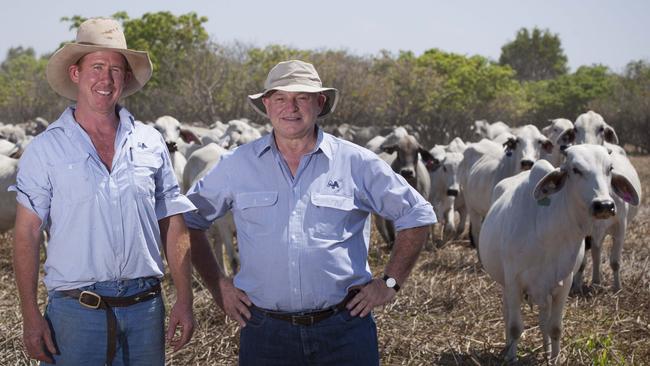Big data a big challenge for farmers, says Donald McGauchie
AACo chairman Donald McGauchie says the farming sector will confront difficult questions surrounding big data.

Australian Agricultural Company and Nufarm chairman Donald McGauchie says the farming sector will be increasingly forced to confront difficult questions surrounding the ownership and management of big data as the “Internet of Things” descends upon Australian agriculture.
Speaking ahead of the second annual Agribusiness Law conference to be staged by AACo and the Television Education Network next month, Mr McGauchie said the rise of big data in agriculture would provide big challenges for farmers, investors and regulators.
“It is coming at us at an extraordinary rate. And it is a big issue in agriculture because you have people with manufacturing equipment recording all sorts of information about what it is doing,’’ he said. Mr McGauchie is also a director of GrainCorp.
“So who owns it? Is it the people who own the equipment or the people who own the land? The National Farmers’ Federation and the big machinery manufacturers have quite differing and strong views about this. This is an area where there are so many questions around ownership.’’
AACo has equipped its staff with smart watches and offline “fitbit” wrist-straps containing data about each tagged animal on its properties, to better capture growth rates and animal health issues in real time.
The company is also using analytics to build mathematic models on weather and other variables to better manage its herd, the largest in the country.
At the same time, NAB recently announced it would increase funding to farmers looking to adapt technology to lift their productivity, while dairy group Fonterra launched its Ventures Co-Lab looking for new innovations, start-ups and disruptive ideas. Rural services provider Ruralco also recently struck a joint venture with large US drone and data analytical company Precision Hawk. “If the world struggles with the pace of change in the past decade or so, just wait until robotics and big data really hit,’’ Mr McGauchie added.
He said the use of genetics in agriculture was also an issue where the law could potentially be left behind unless it evolved.
“The science is evolving so much faster than the legal and social position on so much of this stuff. Gene editing is a completely different technology in some respects but a similar technology in others,’’ he said. “At the moment neither the social or legal position have their heads around that. That in itself is an issue that we are going to need to understand and figure out to what extent the law needs to catch up with where the technology is going.’’
AACo has filed patents that relate to weight gain for cattle, including the feed they ingest.
Consolidated Pastoral Company, backed by Britain-based private equity giant Terra Firma, is also moving to improve the fertility of its herd with an elite genetics production system at its Allawah brahman stud near Biloela in central Queensland, one of the oldest operating brahman studs in Australia. CPC is increasing the amount of angus genetics into its predominantly brahman herd to produce more so-called brangus cattle, which deliver increased growth, improved fertility and better productivity.




To join the conversation, please log in. Don't have an account? Register
Join the conversation, you are commenting as Logout